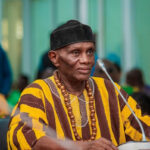The Africa Future Leaders Institute of Global Affairs (AFLIGA) is gearing up to host its first-ever Thought Leadership Series on Wednesday, August 7, 2025, at its International Secretariat in Accra.
With the theme “Rethinking African Female Leadership Development: Lessons from Indigenous African Leadership Constructed Practices,” the event aims to initiate a continental conversation on reclaiming and reimagining traditional African leadership models to inform modern leadership development, especially for women. By delving into pre-colonial African systems where women held significant roles in political and spiritual leadership, the event will explore how these indigenous models can inspire culturally authentic and gender-inclusive leadership frameworks in the present day.
Revisiting African Leadership Traditions
Historically, pre-colonial African societies boasted a variety of leadership systems, from centralized kingdoms to decentralized chiefdoms, many of which involved women in governance structures. For example, in the Ashanti Empire, queen mothers not only co-ruled with kings but also had a say in selecting successors to the throne. Similar examples of female regents and priestesses were prevalent across Nigeria and other parts of the continent.
“Feminine leadership was once a fundamental part of African political and spiritual life. Our task now is to explore how these indigenous systems can be revitalized and adapted for contemporary governance,” stated a spokesperson from AFLIGA.
The event comes at a time when women’s representation in African leadership remains significantly low. According to the Inter-Parliamentary Union (IPU, 2025), women currently hold only 14.5% of parliamentary seats in Ghana and 23.3% in Kenya, showcasing a persistent gender disparity in political leadership.
While there has been progress in tertiary education, with a higher enrollment rate of women compared to men, the transition to equal leadership roles in politics and corporate governance has been slow. Recent data from Boardroom Africa reveals that in 2024, women occupied only 24% of board seats in listed companies in Ghana.
Goals and Structure
The Thought Leadership Series aims to provide a platform for reimagining leadership development by engaging scholars, traditional leaders, civil society actors, and policymakers in critical reflection. Key objectives include reframing dominant leadership narratives through a gender lens, showcasing traditional female leadership roles, developing culturally grounded leadership frameworks, and encouraging cross-sector collaboration to influence policy and institutional reform.
The event will consist of a keynote address by a distinguished scholar in indigenous knowledge and leadership, a panel discussion featuring academics, practitioners, traditional leaders, and gender policy experts, an interactive dialogue with a curated audience of youth leaders, policymakers, academics, and media professionals, and post-event documentation and dissemination through AFLIGA’s platforms.
Restoring African Agency in Leadership Development
AFLIGA notes that modern leadership development has predominantly been shaped by Eurocentric, hierarchical models, which often clash with Africa’s collectivist cultures. These models tend to sideline women and overlook community-based leadership traditions grounded in moral authority, relational stewardship, and participatory governance.
“The Ubuntu ethos, rooted in shared responsibility and reconciliation, offers potent tools for inclusive leadership. It’s time we critically engage and adapt these indigenous systems to meet contemporary needs,” AFLIGA emphasized. The initiative seeks to bridge historical insights with modern requirements, catalyzing a shift from imported leadership paradigms to Afrocentric models that align with Africa’s cultural, political, and social contexts.
Expected Outcomes
The inaugural edition of the Thought Leadership Series is expected to raise awareness of indigenous African leadership values that empowered women, offer critical insights into applying African philosophies such as Ubuntu to leadership training, document practical case studies, propose new frameworks for gender-responsive leadership, and influence continental policy dialogue through a position paper on culturally grounded leadership development.
About AFLIGA and the Thought Leadership Series
AFLIGA is a pan-African think tank dedicated to women and youth empowerment. The Thought Leadership Series serves as a multidisciplinary platform designed to stimulate critical thinking and shape strategic responses to Africa’s most pressing leadership and development challenges.
Each edition of the series covers core themes like leadership and governance, gender equity, cultural identity, peace and security, and economic transformation. Future sessions will delve into topics such as youth innovation, continental trade, and indigenous knowledge systems.
By advocating for inclusive, resilient, and culturally rooted leadership approaches, AFLIGA aims to contribute to the emergence of a new cohort of ethical and competent African leaders.








